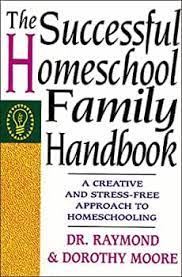Maine is an ideal place for homeschooling, offering a picturesque environment, rich history, and a supportive community. Even during the summer, natural learning is taking place as you enjoy Maine. Its natural beauty becomes an outdoor classroom, while libraries, museums, and cultural centers provide educational resources. Homeschooling in Maine creates a flexible and enriching experience for children. Here is a list of free/affordable places to visit.
1. Hiking: Explore the beautiful trails and mountains in places like Mt. Blue State Park, Baxter State Park, Grafton Notch State Park, and Bradbury Mountain State Park.
2. Swimming: Take a refreshing dip in natural swimming holes and lakes such as Range Ponds State Park, Wilson Lake, Sebago Lake, or Long Lake.
3. Picnicking: Enjoy a picnic with family or friends at local parks like Lithgow Public Library Park in Augusta or Riverfront Park in Lewiston.
4. Outdoor Concerts: Attend free outdoor concerts and live music events held in various towns and cities throughout the summer. Check local event listings for schedules.
5. Farmers' Markets: Visit farmers' markets in towns like Portland, Augusta, and Bangor to enjoy the vibrant atmosphere, sample local produce, and support local farmers.
6. Museums and Historical Sites: Some museums and historical sites in the area offer discounted or free admission on specific days. Check out the Maine State Museum in Augusta or the Maine Maritime Museum in Bath.
7. Festivals and Fairs: Attend community festivals and fairs, such as Wilton’s Blueberry Festival, the Skowhegan State Fair, or the Maine Lobster Festival in Rockland. Admission fees may apply, but many offers free activities and entertainment.
8. Wildlife Watching: Explore wildlife-rich areas like the Maine Wildlife Park in Gray, the Scarborough Marsh Audubon Center, or the Moosehead Lake region, where you can spot a variety of birds, mammals, and other creatures.
9. Local Libraries: Visit your local library to find free summer programs for children and adults, including storytelling, book clubs, and educational workshops.
10. Art Walks: Join art walks in towns like Portland or Lewiston-Auburn, where local artists showcase their work in galleries and public spaces.
11. Beach Days: Spend a day at public beaches like Popham Beach State Park or Higgins Beach, where you can relax, swim, and enjoy the sun.
12. Outdoor Movies: Attend outdoor movie screenings hosted by local organizations or parks. Bring a blanket or lawn chair and enjoy a movie under the stars.
13. Canoeing/Kayaking: Explore the many rivers and lakes in the area by renting a canoe or kayak. Places like Kineowatha Park in Wilton, the Kennebec River or Rangeley Lake offer scenic paddling opportunities.
14. Nature Walks: Take a leisurely stroll through nature reserves and trails, such as the Whistle Stop Train in Farmington, the Kennebec River Rail Trail, or the Saco Riverwalk, and appreciate the natural beauty of the region.
15. Astronomy Events: Participate in stargazing events organized by astronomy clubs or observatories, where you can learn about the night sky and observe celestial objects.
Remember to check the specific websites or contact the respective organizations for any updated information on schedules, fees, and availability. Enjoy your summer adventures in Maine!
1. Hiking: Explore the beautiful trails and mountains in places like Mt. Blue State Park, Baxter State Park, Grafton Notch State Park, and Bradbury Mountain State Park.
2. Swimming: Take a refreshing dip in natural swimming holes and lakes such as Range Ponds State Park, Wilson Lake, Sebago Lake, or Long Lake.
3. Picnicking: Enjoy a picnic with family or friends at local parks like Lithgow Public Library Park in Augusta or Riverfront Park in Lewiston.
4. Outdoor Concerts: Attend free outdoor concerts and live music events held in various towns and cities throughout the summer. Check local event listings for schedules.
5. Farmers' Markets: Visit farmers' markets in towns like Portland, Augusta, and Bangor to enjoy the vibrant atmosphere, sample local produce, and support local farmers.
6. Museums and Historical Sites: Some museums and historical sites in the area offer discounted or free admission on specific days. Check out the Maine State Museum in Augusta or the Maine Maritime Museum in Bath.
7. Festivals and Fairs: Attend community festivals and fairs, such as Wilton’s Blueberry Festival, the Skowhegan State Fair, or the Maine Lobster Festival in Rockland. Admission fees may apply, but many offers free activities and entertainment.
8. Wildlife Watching: Explore wildlife-rich areas like the Maine Wildlife Park in Gray, the Scarborough Marsh Audubon Center, or the Moosehead Lake region, where you can spot a variety of birds, mammals, and other creatures.
9. Local Libraries: Visit your local library to find free summer programs for children and adults, including storytelling, book clubs, and educational workshops.
10. Art Walks: Join art walks in towns like Portland or Lewiston-Auburn, where local artists showcase their work in galleries and public spaces.
11. Beach Days: Spend a day at public beaches like Popham Beach State Park or Higgins Beach, where you can relax, swim, and enjoy the sun.
12. Outdoor Movies: Attend outdoor movie screenings hosted by local organizations or parks. Bring a blanket or lawn chair and enjoy a movie under the stars.
13. Canoeing/Kayaking: Explore the many rivers and lakes in the area by renting a canoe or kayak. Places like Kineowatha Park in Wilton, the Kennebec River or Rangeley Lake offer scenic paddling opportunities.
14. Nature Walks: Take a leisurely stroll through nature reserves and trails, such as the Whistle Stop Train in Farmington, the Kennebec River Rail Trail, or the Saco Riverwalk, and appreciate the natural beauty of the region.
15. Astronomy Events: Participate in stargazing events organized by astronomy clubs or observatories, where you can learn about the night sky and observe celestial objects.
Remember to check the specific websites or contact the respective organizations for any updated information on schedules, fees, and availability. Enjoy your summer adventures in Maine!


 RSS Feed
RSS Feed